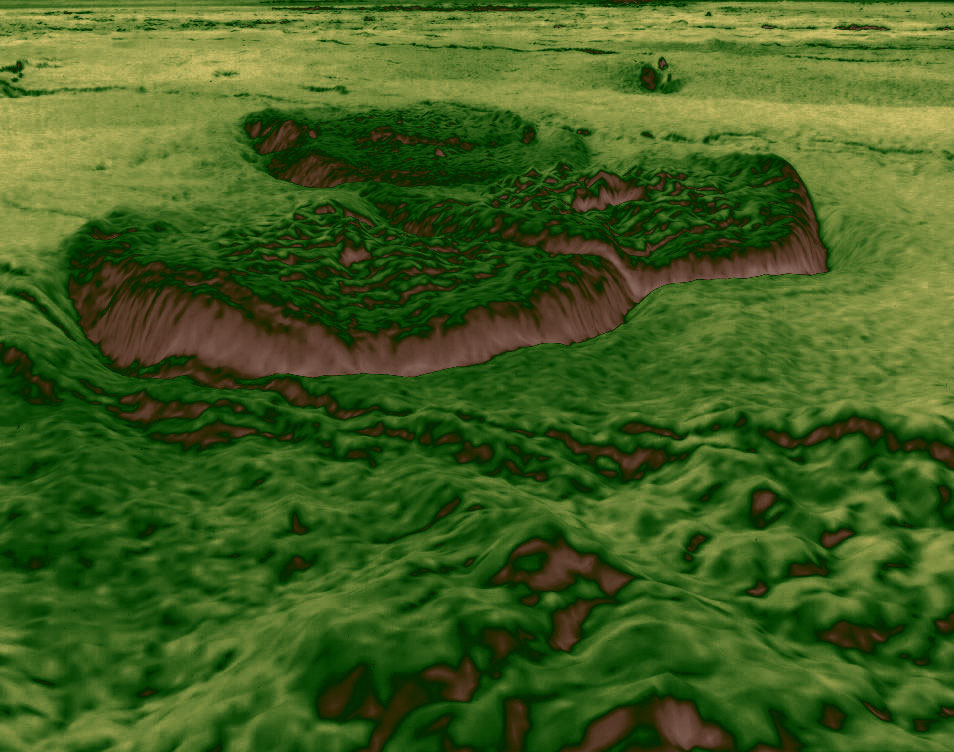I think it is important to remember that Venus is very different from the Earth mostly because it is much closer to the Sun. Therefore, what is true about meteorite impacts and craters on the Earth and the Moon may not be true about meteorite impacts on Venus.
http://www.economist.com/node/10205171 wrote:
Hakan Svedhem, of the European Space Agency, and his colleagues say that Earth and Venus probably started out much the same. The Earth's oceans teemed with plants and animals that converted most of its atmospheric carbon dioxide into carbonates and sank to the bottom as they died, to become sedimentary rocks. By contrast, Venus lost most of its liquid water. That is because Venus, being closer to the sun, started to warm up. This generated more water vapour in its atmosphere, further increasing the temperature in a runaway greenhouse effect.
Recently Swedish newspapers published articles about the findings by Japanese astronomers about Venus. According to an article in Sydsvenskan, May 31, 2013, the Japanese astronomers point out that the outer parts of the Earth cooled quickly, within 20 million years, allowing a lot of water to survive on the Earth. But for Venus this cooling process took much longer, because of Venus's greater proximity to the Sun. For Venus the cooling may have taken as much as 100 million years. By then, almost all the water of Venus had escaped into space.
I have translated the Swedish article into English, using Google translate and ironing out the most embarrassing mistakes. Here it is:
Why is Venus a lifeless and bone dry planet, while the Earth is full of life?
The reason, according to a new study, is that Venus cooled very slowly. When the planet ended up being solid all of its water had disappeared.
Earth, however, cooled very rapidly. Like any other planet the Earth was originally a molten and glowing mass, but during the course of only 20 million years the outer parts of it cooled and solidified.
Most of the planet's water was therefore left, and could eventually form the basis for life and its evolution.
In the new study, presented by researchers working at the University of Tokyo in Japan, the researches point out that Venus could have gone down the same route.
Venus and Earth are similar in size and are composed of roughly the same minerals.
Therefore, the prevailing hypothesis was that the two planets initially developed in much the same way - and that Venus somehow lost its water at a later time in its history.
But the new findings, based on a different model of planetary development, suggest that this is wrong.
According to the researchers, who report their findings in the journal Nature, Venus evolved completely differently from the Earth from the very beginning.
The critical factor was that Venus is much closer to the Sun.
The heat made the planet cool down relatively slowly.
Although it is not possible to calculate exactly how long the process lasted, it is quite possible that it took 100 million years before the magma to the surface cooled and became solid.
At that time, Venus had probably lost most of its water.
Originally the amount of water on Venus may have been the same as on the Earth Earth, but most of it disappeared into space during the slow cooling.
Therefore Venus today lifeless.
Okay. This is my point. If Venus cooled so slowly, perhaps an abiding "softness" of the crust affected the volcanism of the planet during much of its "childhood and youth", so that was quite different from the volcanism on the youthful Earth. Later, however, the presence of plate tectonics on the Earth and the lack of plate tectonics on Venus have caused volcanism to evolve very differently on the two planets.
Or so I think anyway. I am, of course, a complete amateur when it comes to the formation and evolution of Venus and the Earth. Still, I think that we should probably not base our judgment of the volcanism on Venus by what we know about the volcanism on the Earth.
Ann
 Venus' Once Molten Surface
Venus' Once Molten Surface
